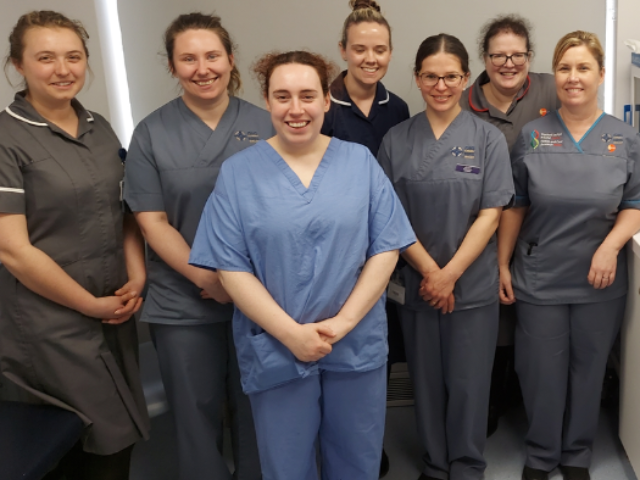
Five Welsh midwifery research studies that are leading best practice
3 May
This International Day of the Midwife (5 May 2024), we are celebrating the vital role of research midwives across Wales, who spend their days improving midwifery practice and services.
Currently, there are 27 reproductive health and childbirth research studies open in Wales which aim to improve outcomes for mothers and their babies.
Here are five studies conducted in Wales which have changed practice and are improving the lives of mums and their babies:
1. Protecting newborns against strep b
Research midwives at Betsi Cadwaladr University Health Board aimed to help make pregnancy and childbirth safer in a UK-wide study to prevent newborn babies from contracting a potentially life-threatening bacteria - group B streptococcus - from their mothers during birth.
Jayne Goodwin, National Head of Research Delivery at Health and Care Research Wales, said: “The study would be answering important questions around how we could reduce the number of new-borns contracting GBS. Research midwives are absolutely essential to making research like this happen.”
2. Improving maternal health outcomes
The Obstetric Bleeding Strategy Cymru project has improved the management of postpartum haemorrhage in maternity units throughout Wales. The project has also been adopted into the All Wales Postpartum Haemorrhage Guidelines and health boards now follow the same process for management of blood loss during childbirth.
Professor Julia Sanders, Health and Care Research Wales’ Specialty Lead for Reproductive Health, said: “I’m so proud of developments like this which show how the multidisciplinary maternity teams in Wales work together to develop and test pioneering improvements to maternity care and midwifery practice.”
3. Supporting mothers’ breastfeeding goals
The ABA-feed study, led by a team of specialist midwives at Swansea Bay University Health Board, engaged almost 200 first-time mums in a trial to look at whether having enhanced support such as peer support could improve continuation of successful breastfeeding.
Dr Nicola Williams, National Director of Support and Delivery at Health and Care Research Wales, said: “It’s encouraging to see the positive feedback from participants - their experiences are vital to inform the future design of services and to support women making more informed choices about what is right for them and their baby.”
4. Addressing twin pregnancy and needs
Evaluating Risk Antenatally in Twin Pregnancies (EARS) research project was a UK-wide study aiming to discover risk factors in multiple pregnancy that can lead to babies becoming poorly before and after birth.
Professor Julia Sanders said: “Research like the EARS project is vital in contributing important evidence so we know how best to advise women and keep their babies safe during pregnancy, child birth and postnatal care.”
5. Helping mothers kick the habit
Specialist midwives at Swansea Bay University Health Board are supporting pregnant smokers to quit smoking using nicotine replacement along with new behavioural support intervention.
Research midwife Joelle Morgan, said: “We are hoping to identify women at booking or at their dating scan so that we can support them early on in the pregnancy.”
What does a day in the life of a research midwife look like? Watch the video of Sharon Jones to find out more.
Find out more about International Day of the Midwife on the International Confederation of Midwives website.
Sign up to our weekly bulletin and keep up to date with all the latest research happening across Wales.